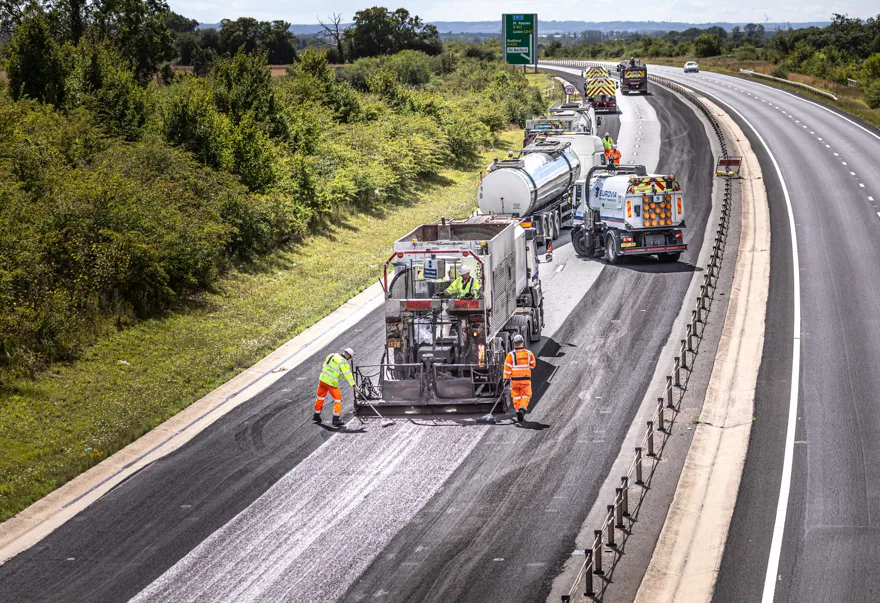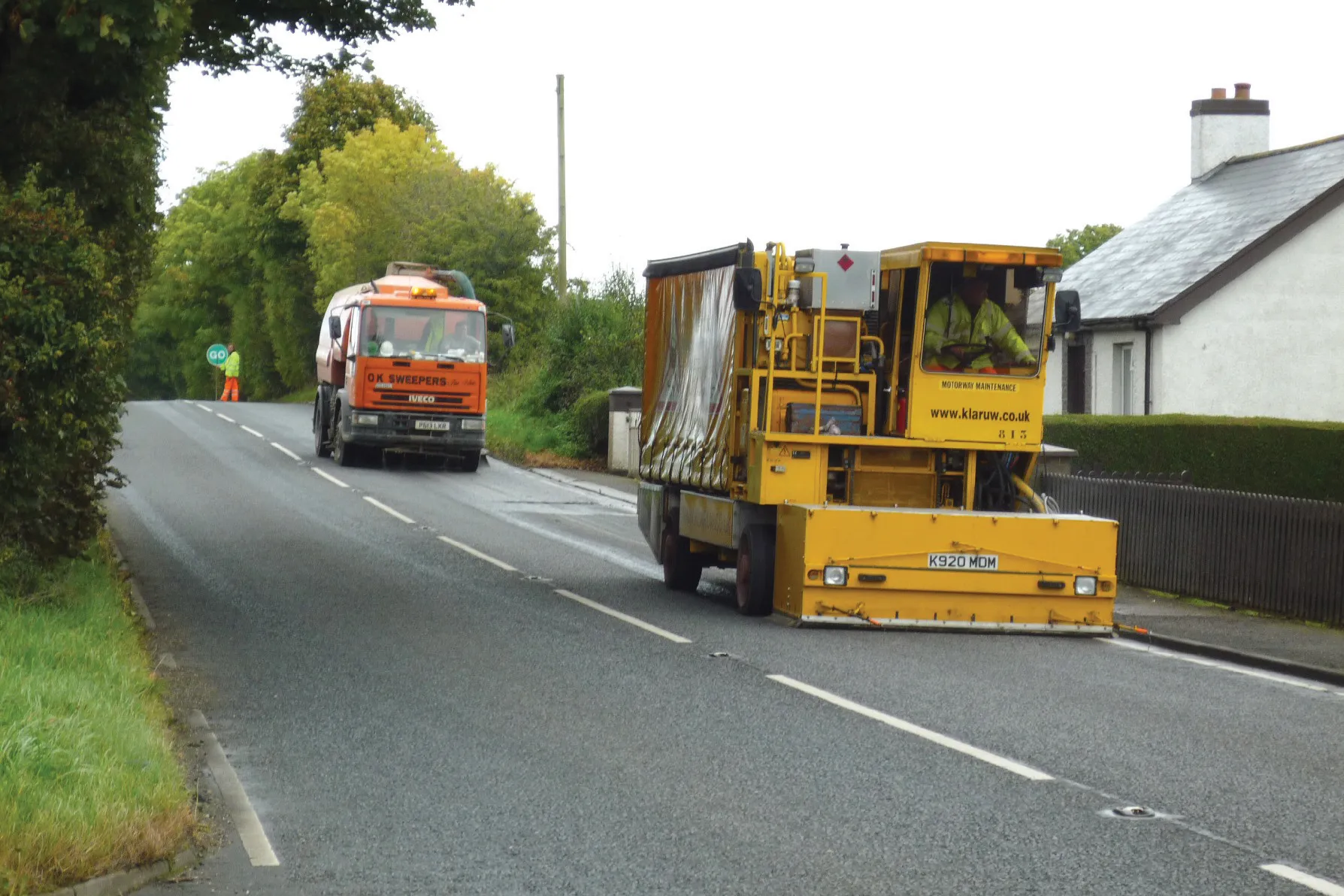
UK contractor EST recently completed the largest micro-surfacing operation on the country’s Strategic Road Network, laying around 115,000m² of Cold Applied Ultra-Thin Surfacing – CAUTS.
EST was working for main contractor Tarmac on behalf of the government agency Highways England. EST laid the CAUTS over two weeks in August on the carriageway around the A1/A421 Black Cat roundabout using Eurovia’s BBA HAPAS-approved proprietary micro-surfacing product, GripFibre.
GripFibre uses Eurovia’s highly modified bitumen emulsion - Emulvia Grip P – which is licenced by the company’s internal materials research and development centre, JLUK. It is produced by Eurovia’s internal emulsion manufacturer PolyBitumens. The product is designed to reduce the risk of aggregate segregation to improve surface texture and skid resistance allowing for a durable road surface.
This micro-surfacing scheme reduced costs by around 65%, according to Eurovia, when compared to a conventional plane-out and relay hot asphalt operation.
It also provided a significant reduction in carbon emissions through cold application – the material is applied at temperatures below 30°C, noted Paul Goosey, managing director for production at Eurovia. This scheme has also delivered enormous time savings, with a traditional resurfacing operation of this scale taking up to six weekends to complete, compared to two weekends for EST’s four micro-surfacing crews – meaning it is around 66% quicker.
Eurovia UK is a wholly owned subsidiary of Eurovia, ultimately part of VINCI and which provides transport and infrastructure services.








